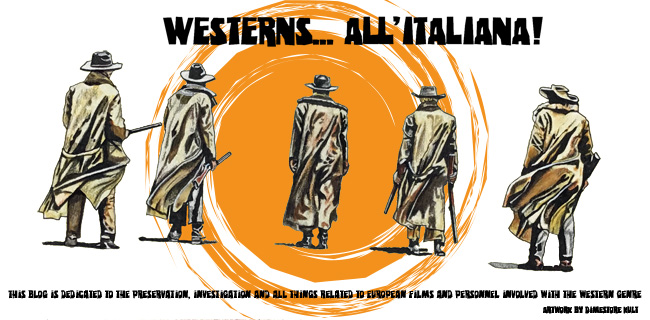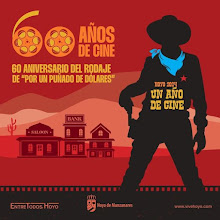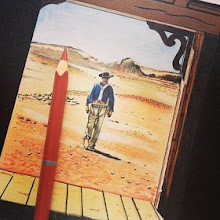Fernando Casanova was born Fernando Gutiérrez López on
November 24, 1925 in Guadalajara, Jalisco, Mexico. As a teenager, his greatest
dream was to be a great bullfighter, and as soon as he could leave his studies
he became a bullfighter. Shortly afterwards he had the opportunity to debut in
the Toreo de la Condesa in Mexico City, where he suffered a goring in the right
leg. Before this failure, Fernando
returned to the squares of province, but after five years of fighting for a
good place in the bullfighting, decided to leave this profession.
In 1946 , thanks to his appearance, he was able to start
a career in films with supporting roles in classic films such as “The Intimate
Life of Marco Antonio and Cleopatra” (1946), “The Kneeling Goddess” (1947), “Juan
Charrasqueado” (1947), “Si adelita se fuera con otro” (1948), “La malquerida”
(1949), “Puerta joven!” (1949), “Él”
(1952), “El mártir del calvario” (1952) and “Piel canela” (1953),
His first opportunity as a star was given to him by producer
and relative Raúl de Anda, who along with Alfonso Rosas Priego launched him to
stardom by offering him a film that would turn out to be a phenomenal
blockbuster: “El águila negra” (The Black Eagle) (1953). Shortly after, and
without even this one having been released, he participated in a film that
turned out to be another success: “Escuela de vagabundos” (School of Vagabundos)
(1954), of Rogelio A. González. In this
latter film he competed for the attention of the beautiful Miroslava with Pedro
Infante.
Before the success
of “El águila negra”, the producer Raul de Anda planned a series of films with
the character the central figure, being these “El águila negra en el tesoro de
la muerte” (1954), “El vengador solitario” (1954), with Eulalio González
(1956), “El águila negra en la ley de lo Fuertes” (1956), “El águila negra
contra los enmascarados de la muerte” (1956) “El águila negra contra los
diablos de la pradera” (1956) in the last three with Fernando Soto "Mantequilla"
as a companion in his adventures.
Another character with whom he made a three-film series was "The
Devil," with moderate success. By
this time he participated in interesting films like “The Bandits of Rio Frío”
(1956) and “Pies de Gato” (1957) alternating with Luis Aguilar, “Cuatro contra
el imperio” (1955) with Antonio Aguilar, Rebeca Iturbide and Charito Granados ,
and “El hombre del alazán” (1958), with Martha Mijares and Flor Silvestre .
By the 1960s , Fernando, had solidified his popularity
and was known as the first figure of the Mexican action film - of which he is
considered to be one of its greatest exponents, along with figures such as
Mario Almada, Julio Alemán, Armando Silvestre And Valentín Trujiilo - and of
the so-called "Chili Western", alternating with several figures of
the 1960s such as Antonio and Luis Aguilar, Rosa de Castilla, Sonia Furió,
Armando Silvestre, Javier Solís, David Reinoso, El Santo, Manuel López Ochoa,
Julio Aldama and Lucha Villa. He also
filmed a couple of movies in Europe where he was billed as Fred Canow.
In the decade of 1970s his participation in cinema
declined. Nevertheless, he participated
in the comedy “National Mechanics” (1973) by Luis Alcoriza. In the following decades he had a constant
participation, both in cinema and Home Video, recording his last appearance in
the year 2007. In all, he starred in 178
films throughout his long career.
In 2010 he married at age 85 with his partner of several
years, although he had already had other marriages.
Fernando Casanova died in Mexico City on November 16,
2012 at the age of 90 years-old.
CASANOVA,
Fernando (aka Fred Canow) (Fernando
Gutiérrez López) [11/24/1922, Guadalajara,
Jalisco, Mexico – 11/16/2012, Mexico City, Federal District, Mexico (prostate
cancer)] – writer, singer, film, actor, married to María Gunariz (2010-2012), father
of Fernando Casanova, Adriana Casanova, Ligia Casanova Gutiérrez.
4 Bullets for Joe – 1963 (Sheriff Paul) [as Fred Canow]
Sign of the Coyote – 1964 (César de Echagüe/El Coyote)











No comments:
Post a Comment